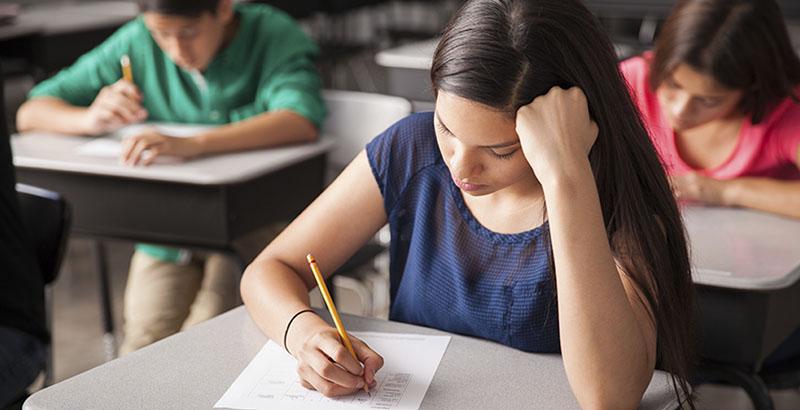Standardized testing has become an integral part of education systems around the world.
These tests are used to measure the knowledge and skills of students and to evaluate the performance of schools and teachers. While there are many arguments in favor of standardized testing, there are also concerns about its impact on student learning.
In this essay, we will explore the impact of standardized testing on student learning.
One of the main arguments in favor of standardized testing is that it provides a way to measure student learning and identify areas where students need additional support. Educators can utilize this information to enhance teaching methods and create focused interventions for students facing challenges.

Standardized tests also provide a way to compare the performance of students across different schools and districts, which can be useful for policymakers and educators.
However, there are also concerns about the impact of standardized testing on student learning. One concern is that the emphasis on testing can narrow the curriculum, focusing solely on tested content.
This can result in teachers spending more time on test preparation and less time on other important skills such as critical thinking, problem-solving, and creativity. Students might disengage from learning when they sense education solely centers on test success.
Another concern is that systematized tests may not accurately measure student learning. Many factors can affect a student’s performance on a test, such as test anxiety, cultural bias, and differences in learning styles.
Standardized tests might overlook individual strengths, weaknesses, and learning contexts. This can lead to inaccurate assessments of student learning and can result in unfair evaluations of schools and teachers.
The pressure to perform well on standardized tests can also have negative effects on students’ mental health and well-being. Students may feel anxious, stressed, or overwhelmed by the pressure to perform well.
This can lead to a lack of motivation, decreased self-esteem, and even depression. In extreme cases, students may resort to cheating or other unethical behavior to achieve high scores.
There is also evidence to suggest that systematized testing can perpetuate inequality in education. Research has shown that students from disadvantaged backgrounds tend to perform worse on standardized tests than their more advantaged peers.
This can lead to a widening achievement gap between different groups of students and can perpetuate social and economic inequalities.
Though these concerns exist, standardized testing can still support student learning in various ways. Tests can assess diverse skills and knowledge, not just rote memorization.
Tests combined with observations and portfolios offer a comprehensive view of student learning.
Furthermore, schools use test data to pinpoint support areas and create targeted interventions for students’ needs.
Conclusion
The impact of standardized testing on student learning is complex and multifaceted.
Arguments for standardized testing exist, but concerns include narrow curriculum, inaccurate assessments, mental health impact, and inequality perpetuation.
Yet, standardized tests can aid learning by assessing diverse skills, using various forms, and identifying areas requiring extra support.
Education aims for well-rounded, successful students. Standardized testing should aid this, not be an end goal. 온라인카지노사이트